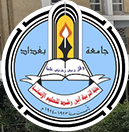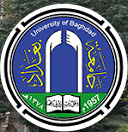Abstract
This research deals with the biography of Sheikh Muhammad bin Abdullah bin Elias, one of the most prominent pioneers of Islamic education in China during the sixteenth and seventeenth centuries. The Sheikh was born in the city of Nanjing during the late Ming Dynasty and the beginning of the Qing Dynasty, and grew up in a distinguished scientific environment that enabled him to combine Islamic sciences with traditional Chinese culture . The research discussed his most prominent contributions to spreading Islamic education, including establishing religious schools in mosques to teach Islamic sciences and the Arabic language, and translating Islamic texts into the Chinese language, which helped enhance the correct understanding of Islam among Chinese Muslims He also focused on his efforts to prepare a generation of Muslim scholars who contributed to spreading the teachings of Islam with a balanced mix with local culture. The research concluded that Sheikh Mohammed bin Abdullah was a pivotal figure in integrating Islamic identity with Chinese society, which led to enhancing mutual understanding between cultures. His scientific and cultural legacy is a testament to the importance of education in strengthening ties between diverse communities
Keywords
Islamic education, China, Sheikh Muhammad bin Abdullah, cultural heritage, Chinese Islamic identity
Article Type
Article
First Page
121
Last Page
139
Publication Date
6-15-2025
Creative Commons License

This work is licensed under a Creative Commons Attribution 4.0 International License.
Recommended Citation
Khatar, leqaa Shaker
(2025)
"Pioneers of Islamic Education in China Muhammad bin Abdullah bin Elias, d. 1597 AD,"
Alustath Journal for Human and Social Sciences: Vol. 64:
Iss.
2, Article 11.
DOI: 10.36473/cg838030
Available at:
https://alustath.researchcommons.org/journal/vol64/iss2/11










